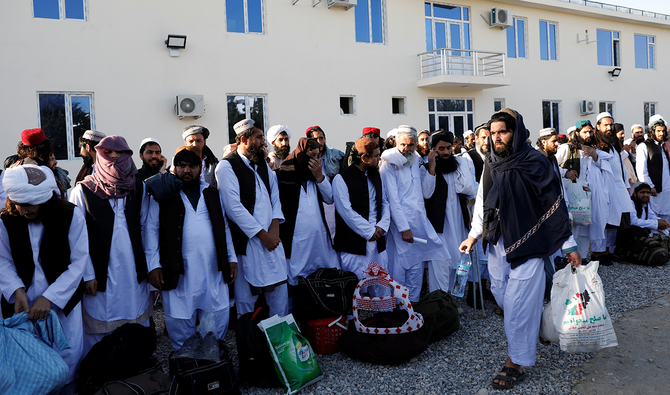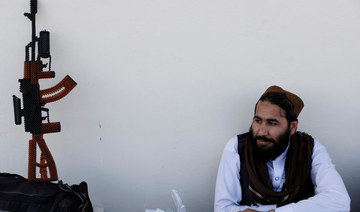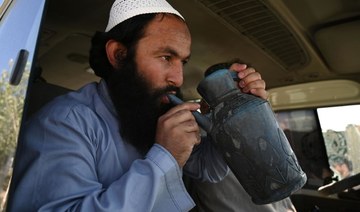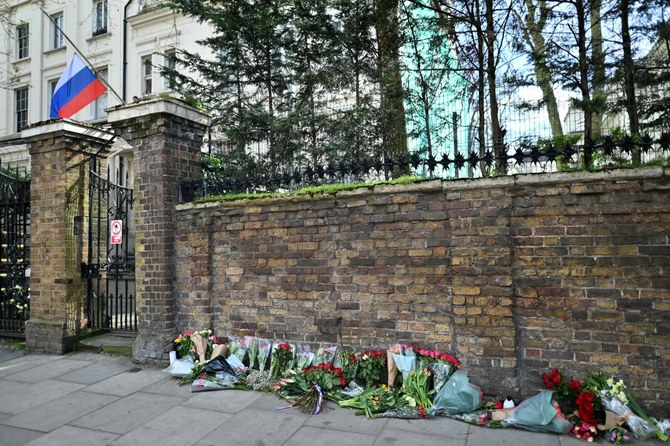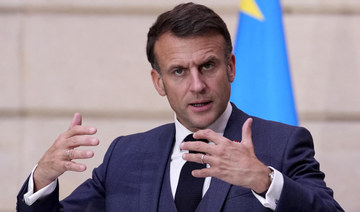KABUL: The advent of an abrupt troop withdrawal from Afghanistan as part of US President Donald Trump’s re-election campaign could leave the country with heightened conflict and the region in chaos, Afghanistan’s former intelligence chief has warned.
Under the Feb. 29 peace deal signed between the Taliban and the US in Qatar, Washington has already begun withdrawing troops from the country and, by spring next year, all personnel will be gone.
Rahmatullah Nabil, former head of the Afghan National Directorate of Security, said that Washington was poised to give a significant role in Afghan affairs to its Cold War era ally, Pakistan, despite the fact that Islamabad had been a key supporter of the Taliban — at the time of the Soviet withdrawal from the country, Pakistan used the Taliban as a proxy to advance its doctrine of strategic depth.
“If the deal is such that the destiny of Afghanistan is placed in Pakistan’s hands in exchange for the guarantee of withdrawal of US troops that are immune from attacks ... I dare say that this deal cannot be implemented but will lead to more intensive war in Afghanistan and the region,” he told Arab News on Wednesday.
He said that if the move was for Trump to be able to use the election slogan “I ended the war in Afghanistan” that he was “not very optimistic” about the prospect of peace.
Pakistan, on the other hand, has consistently called for an “Afghan-led, Afghan-owned” peace and reconciliation process, and an inclusive intra-Afghan dialogue as the only way to realize the Afghan national reconciliation, leading to prompt end of the prolonged conflict.
“It is critical that the intra-Afghan negotiations commence at the earliest, culminating in a comprehensive and inclusive political settlement in Afghanistan,” Pakistan’s Foreign Ministry said in a statement on May 17, adding: “Pakistan reiterates its commitment to continue to support a peaceful, stable, united, democratic and prosperous Afghanistan at peace with itself and its neighbors.”
Trump, who has declined to set a timetable for complete troop withdrawal, said the US had been in Afghanistan long enough. “We can always go back if we want to,” the president said during a news conference on Wednesday.
The Pentagon was preparing for Trump to withdraw thousands of troops before the presidential election in November, US media reported on Wednesday.
Since the Taliban halted attacks on foreign troops as per the Qatar accord, US officials no longer argue that the pullout will be conditional, which means that the US may not wait for the start of intra-Afghan talks before completing its military withdrawal.
Nabil, who served initially as chief of the Presidential Protection Force before serving for five years as general director of Afghanistan’s spy agency until 2015, also said that Qatar was playing its part in the “New Great Game” to find a footstep in Afghanistan, which is why the oil-rich nation had given shelter and provided funds to Taliban leaders in Doha and allowed them to own businesses there.
“They (Qatar) want to be part of regional game in the meantime, and want to undermine the role of the UAE and Saudi Arabia,” Nabil said.
The office of Afghan President Ashraf Ghani did not respond to Arab News’ request for comment as to how he viewed the US withdrawal, and whether Trump’s administration had shared plans and details surroundin it with Kabul.
Said Azam, a Kabul-based political analyst, told Arab News that the post-US withdrawal period in Afghanistan would see other regional powers, such as India, Iran, Russia and China, fight for their interests.
The International Crisis Group, in a report following the Doha deal, said: “The impact of a US military withdrawal on the Afghan government would extend beyond its security forces’ fate; any negative shift in the country’s already tenuous security situation could prompt an end not only to civilian and humanitarian assistance, but also to vital foreign commercial investments.
“The (Doha) agreement made the withdrawal contingent on Taliban compliance with anti-terrorism commitments but not explicitly contingent on a successful Afghan peace process. The deal commits the Taliban to starting peace talks with other Afghans but does not speak to scenarios in which talks might fail to begin or to generate momentum,” it added.



